stupid insulation question
Fori
17 years ago
Related Stories

GREEN BUILDINGInsulation Basics: Heat, R-Value and the Building Envelope
Learn how heat moves through a home and the materials that can stop it, to make sure your insulation is as effective as you think
Full Story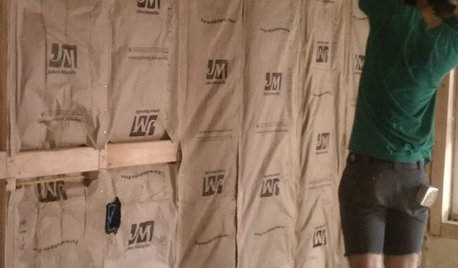
REMODELING GUIDESCool Your House (and Costs) With the Right Insulation
Insulation offers one of the best paybacks on your investment in your house. Here are some types to discuss with your contractor
Full Story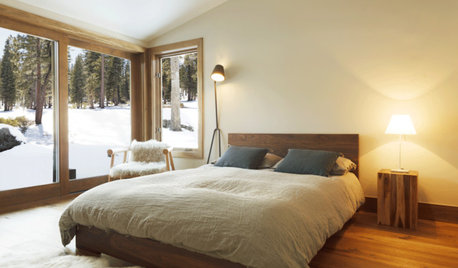
WINDOW TREATMENTSEasy Green: 9 Low-Cost Ways to Insulate Windows and Doors
Block drafts to boost both warmth and energy savings with these inexpensive but effective insulating strategies
Full Story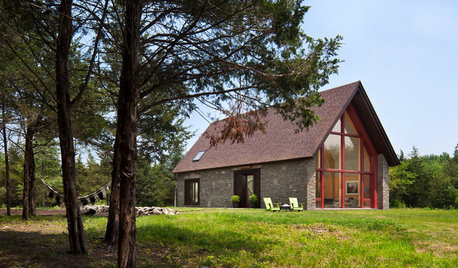
GREEN BUILDINGInsulation Basics: Designing for Temperature Extremes in Any Season
Stay comfy during unpredictable weather — and prevent unexpected bills — by efficiently insulating and shading your home
Full Story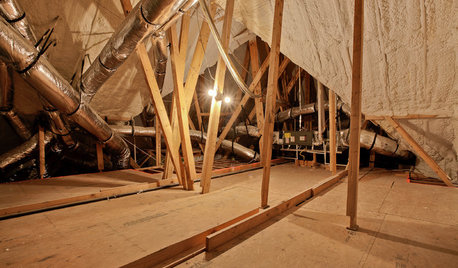
GREEN BUILDINGEcofriendly Cool: Insulate With Wool, Cork, Old Denim and More
Learn about the pros and cons of healthier alternatives to fiberglass and foam, and when to consider an insulation switch
Full Story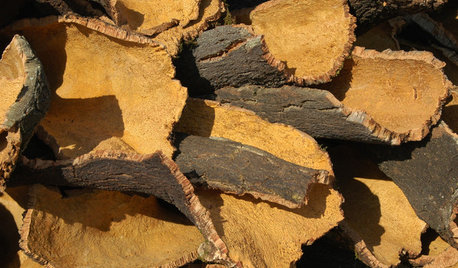
GREEN BUILDINGInsulation Basics: Natural and Recycled Materials
Consider sheep’s wool, denim, cork, cellulose and more for an ecofriendly insulation choice
Full Story
MATERIALSInsulation Basics: What to Know About Spray Foam
Learn what exactly spray foam is, the pros and cons of using it and why you shouldn’t mess around with installation
Full Story
REMODELING GUIDESConsidering a Fixer-Upper? 15 Questions to Ask First
Learn about the hidden costs and treasures of older homes to avoid budget surprises and accidentally tossing valuable features
Full Story
MOVINGHiring a Home Inspector? Ask These 10 Questions
How to make sure the pro who performs your home inspection is properly qualified and insured, so you can protect your big investment
Full Story
GREEN BUILDINGConsidering Concrete Floors? 3 Green-Minded Questions to Ask
Learn what’s in your concrete and about sustainability to make a healthy choice for your home and the earth
Full StorySponsored
Custom Craftsmanship & Construction Solutions in Franklin County
More Discussions










prettyphysicslady
fqp25
Related Professionals
La Verne Kitchen & Bathroom Designers · Riviera Beach Kitchen & Bathroom Designers · Soledad Kitchen & Bathroom Designers · Alpine Kitchen & Bathroom Remodelers · Chandler Kitchen & Bathroom Remodelers · Fair Oaks Kitchen & Bathroom Remodelers · Park Ridge Kitchen & Bathroom Remodelers · Pinellas Park Kitchen & Bathroom Remodelers · Portage Kitchen & Bathroom Remodelers · Southampton Kitchen & Bathroom Remodelers · Palos Verdes Estates Architects & Building Designers · Panama City Beach Architects & Building Designers · Nanticoke Architects & Building Designers · Bell Gardens Architects & Building Designers · Ronkonkoma Architects & Building Designerssenorjosef
ForiOriginal Author
senorjosef
sharon_sd
ForiOriginal Author
fqp25
ForiOriginal Author
senorjosef
manorris01_aol_com
worthy